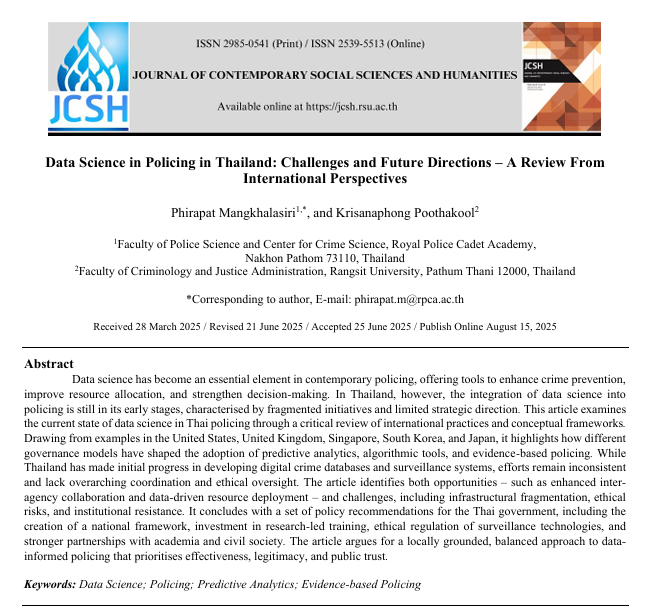Abstract
Data science has become an essential element in contemporary policing, offering tools to enhance crime prevention,
improve resource allocation, and strengthen decision-making. In Thailand, however, the integration of data science into
policing is still in its early stages, characterised by fragmented initiatives and limited strategic direction. This article examines the current state of data science in Thai policing through a critical review of international practices and conceptual frameworks. Drawing from examples in the United States, United Kingdom, Singapore, South Korea, and Japan, it highlights how different governance models have shaped the adoption of predictive analytics, algorithmic tools, and evidence-based policing. While Thailand has made initial progress in developing digital crime databases and surveillance systems, efforts remain inconsistent and lack overarching coordination and ethical oversight. The article identifies both opportunities – such as enhanced interagency collaboration and data-driven resource deployment – and challenges, including infrastructural fragmentation, ethicalrisks, and institutional resistance. It concludes with a set of policy recommendations for the Thai government, including the creation of a national framework, investment in research-led training, ethical regulation of surveillance technologies, and stronger partnerships with academia and civil society. The article argues for a locally grounded, balanced approach to data informed policing that prioritises effectiveness, legitimacy, and public trust.
Keywords: Data Science; Policing; Predictive Analytics; Evidence-based Policing




